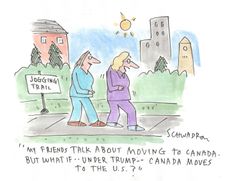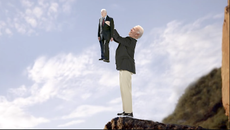Why men need to fess up
In the wake of the #MeToo campaign, it's time for men to come clean


I've been watching the #MeToo social media campaign roll across my feed with a sickening sense of familiarity. It's not just that there was literally another "me too" campaign 10 years ago. Nor is it that those pink pussy hats are less than a year old, or that it's been only three years since the accusations against Bill Cosby burst into public consciousness — accusations that, with a bit of research, were revealed to have been widely known for years.
Going back at least to the 1991 Clarence Thomas hearings, we seem to go through these "teachable moments" with metronomic regularity. We discover over and over, as if we didn't already know, just how familiar sexual harassment, abuse, and even assault are to very nearly all women.
If sharing these stories helps even a handful of women feel less alone in their experience, then that is reason enough to do it. But forgive me for being skeptical of the idea that anything much will change — in Hollywood, in politics, in the military, in our families and churches — because so far this time isn't different, at least not yet, at least not in one important way.
Subscribe to The Week
Escape your echo chamber. Get the facts behind the news, plus analysis from multiple perspectives.

Sign up for The Week's Free Newsletters
From our morning news briefing to a weekly Good News Newsletter, get the best of The Week delivered directly to your inbox.
From our morning news briefing to a weekly Good News Newsletter, get the best of The Week delivered directly to your inbox.
A female friend disinclined to share her own stories with a #MeToo post put her finger on it: "When are we going to see a #MeToo campaign for men?"
She didn't mean men who've experienced harassment or sexual assault themselves. That's also a much more widespread phenomenon than most people probably realize, and happens in some of the same ways and in some of the same contexts in which women get harassed and assaulted — and is very much worth more sustained attention than it gets. Nor did she exactly mean the "#WithYou" campaign that Amy Siskind has been promoting, a pledge that ordinary guys are supposed to take and feels like an exceptionally transparent bit of virtue signaling.
No, she meant the men who are doing the kinds of things that women are talking about when they say #MeToo, but who, for obvious reasons, choose not to name themselves, or talk about their own behavior. Obviously, the Harvey Weinsteins of the world aren't going to do anything of the kind. But most of these stories aren't about encounters with extraordinary monsters, nor is sexual harassment and abuse the product of an impersonal malevolent miasma hovering low over the culture. Most of these acts, if not most of the worst acts, are committed by pretty ordinary men. Men like myself.
And our silence is one big reason that nothing fundamentally changes.
Why do I say that? Well, think about what it must feel like to be a woman experiencing, on a regular basis, unwelcome touching and sexualizing comments. Nearly every woman I know has dealt with this sort of thing, and most of them let it slide most of the time, which sets up a pattern of behavior whereby letting it slide is what you do. It should be obvious how advantageous that kind of preparation is for a Harvey Weinstein on the prowl.
But the alternative — becoming the kind of woman who never tolerates that kind of behavior — has its own severe drawbacks, and not just in terms of lost opportunities from being known as someone "difficult" or "humorless." Intimacy depends on mutual vulnerability, and a life spent on guard against male intrusion is no way to learn that intimacy.
The key word, though, is mutual.
Nobody likes fessing up to having done something wrong, particularly not something that, rationally, should make other people be on their guard with you, and trust you less. But you can't earn true trust by taking a pledge to be trustworthy. The collective determination by most men either to represent ourselves as good guys who would never cross this or that line — or to wave away any transgression by saying that the line was never there in the first place — amounts to a massive gas lighting of the other half of the population.
Because let's be honest: Most of us aren't clods who have no idea what we're doing. Just like it was with Hollywood and Harvey Weinstein, if we admit it, most of us know. And we should say so.
Speaking for myself, at least three #MeToo posts in my Facebook feed came from women who might well, among other experiences, be thinking about me. There's the former colleague who used to joke about how blatantly I would check her out. There's the ex-girlfriend who broke things off in part because of one night where she felt I hadn't listened to what her body language was saying about what she wanted, or didn't want. There's the former classmate who I couldn't keep my hands off of in high school — a common enough occurrence in my teenage years that I acquired a nickname. I was known as "hands across America."
I doubt I'm at the top of any of these women's lists. And I'm not the kid I was in high school. But I also know those aren't the only times I've made a woman feel uncomfortable, vulnerable, or nervous. I'm glad of the times someone has told me so. I hope I've been appropriately apologetic, and not — as men too often do — reacted defensively. And I've striven to be aware of those kinds of dynamics, and to change them myself, and not wait to be told.
People are made of flesh and blood, and desire is messy and wild. We all make mistakes, and will sometimes accidentally hurt other people. But far from being an exculpatory get-out-of-jail-free card, that just implies a different set of obligations. To work at being conscious not just of your own needs and desires, but those of the people you feel desire towards. To own up to your mistakes, as quickly as possible, and do what you can to make amends. And to do so directly, so that the person you hurt knows she's not crazy, and that you, specifically, know she's as much a human being as you are.
And to keep talking about your own experience, honestly, while also listening to hers. The enormous power in speaking the simple truth of experience directly is the message of the #MeToo campaign. But the Harvey Weinsteins of the world thrive not only on the silence of their victims, but on that of the ordinary, run-of-the-mill guys who, by not acknowledging their own behavior, make silence the norm, and put the burden of speaking entirely on those who really have been through enough.
Sign up for Today's Best Articles in your inbox
A free daily email with the biggest news stories of the day – and the best features from TheWeek.com
Noah Millman is a screenwriter and filmmaker, a political columnist and a critic. From 2012 through 2017 he was a senior editor and featured blogger at The American Conservative. His work has also appeared in The New York Times Book Review, Politico, USA Today, The New Republic, The Weekly Standard, Foreign Policy, Modern Age, First Things, and the Jewish Review of Books, among other publications. Noah lives in Brooklyn with his wife and son.
-
 Does Nepal have too many tigers?
Does Nepal have too many tigers?Under the Radar Wild tiger numbers have tripled in a decade but conservation success comes with rise in human fatalities
By Harriet Marsden, The Week UK Published
-
 Today's political cartoons - January 19, 2025
Today's political cartoons - January 19, 2025Cartoons Sunday's cartoons - moving to Canada, billionaire bootlickers, and more
By The Week US Published
-
 5 inflammatory cartoons on the L.A. wildfires
5 inflammatory cartoons on the L.A. wildfiresCartoons Artists take on climate change denial, the blame game, and more
By The Week US Published
-
 Late night hosts lightly try to square the GOP's Liz Cheney purge with its avowed hatred of 'cancel culture'
Late night hosts lightly try to square the GOP's Liz Cheney purge with its avowed hatred of 'cancel culture'Speed Read
By Peter Weber Last updated
-
 Late night hosts survey the creative ways America is encouraging COVID-19 vaccinations, cure 'Foxitis'
Late night hosts survey the creative ways America is encouraging COVID-19 vaccinations, cure 'Foxitis'Speed Read
By Peter Weber Published
-
 The Daily Show's Trevor Noah carefully steps through the Israel-Palestine minefield to an 'honest question'
The Daily Show's Trevor Noah carefully steps through the Israel-Palestine minefield to an 'honest question'Speed Read
By Peter Weber Last updated
-
 Late night hosts roast Medina Spirit's juicing scandal, 'cancel culture,' and Trump calling a horse a 'junky'
Late night hosts roast Medina Spirit's juicing scandal, 'cancel culture,' and Trump calling a horse a 'junky'Speed Read
By Peter Weber Last updated
-
 John Oliver tries to explain Black hair to fellow white people
John Oliver tries to explain Black hair to fellow white peopleSpeed Read
By Peter Weber Published
-
 Late night hosts explain the Trump GOP's Liz Cheney purge, mock Caitlyn Jenner's hangar pains
Late night hosts explain the Trump GOP's Liz Cheney purge, mock Caitlyn Jenner's hangar painsSpeed Read
By Peter Weber Published
-
 Late night hosts marvel at that photo of the Bidens and Jimmy and Rosalynn Carter, mark Star Wars Day
Late night hosts marvel at that photo of the Bidens and Jimmy and Rosalynn Carter, mark Star Wars DaySpeed Read
By Peter Weber Published
-
 Late night hosts temper America's new surge of optimism, hit Romney's rough reception, Flynn's Pledge fail
Late night hosts temper America's new surge of optimism, hit Romney's rough reception, Flynn's Pledge failSpeed Read
By Peter Weber Published